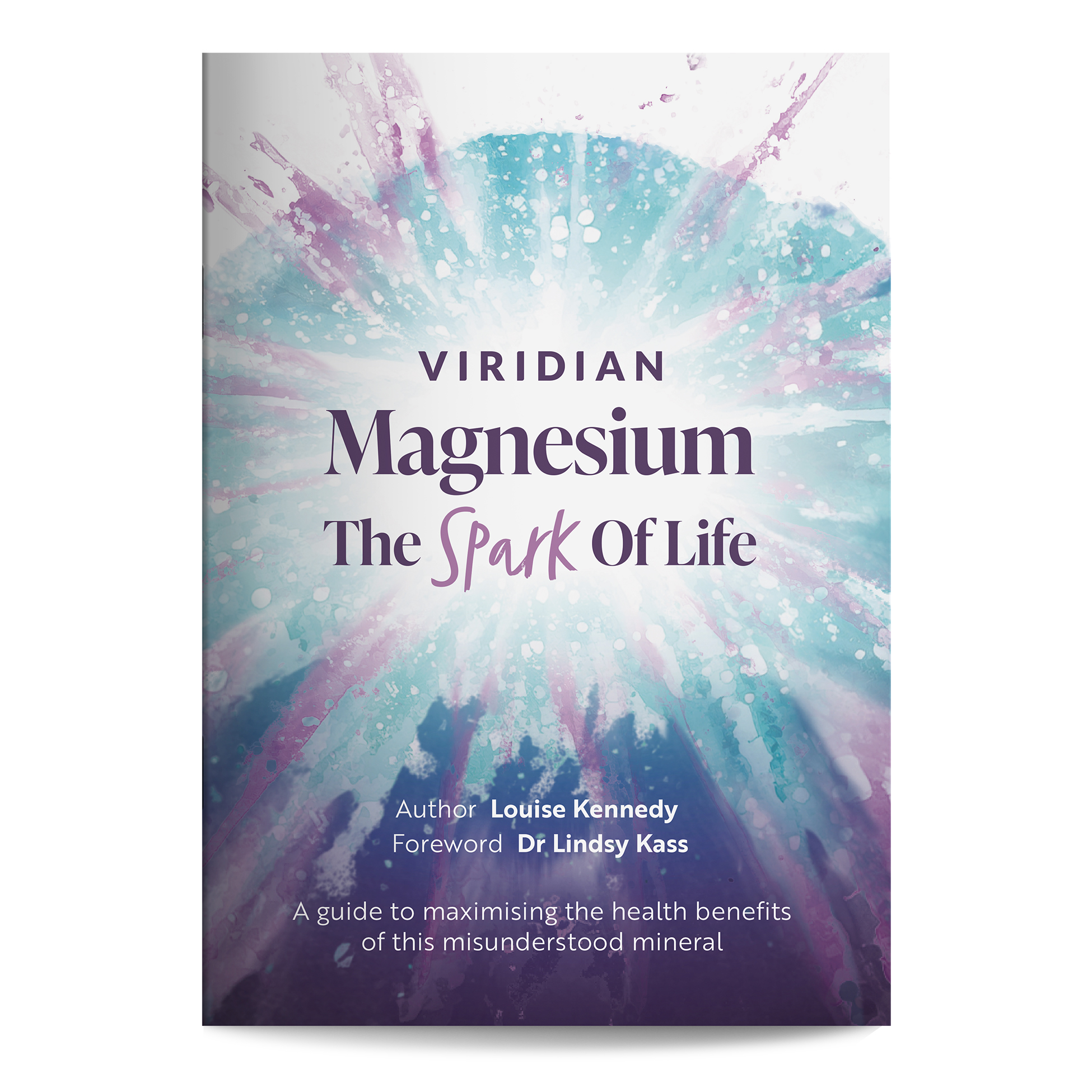A new UK-wide survey has revealed an alarming lack of awareness about magnesium, a vital mineral crucial to health and wellbeing. Conducted by ethical supplement brand Viridian Nutrition, who have also published a White Paper on Magnesium, the survey of more than 2,000 people found that 70% didn’t realise magnesium is essential to consume regularly — and nearly three-quarters (73%) aren’t taking magnesium supplements, even though many could benefit.
“The findings suggest that confusion surrounding dietary sources, supplement types, and magnesium’s role in the body is leading to ineffective supplementation and potential health risks,” says Aimee Benbow, Nutrition Director at Viridian Nutrition. “Independent health stores are a valuable community resource and are in an ideal position to help fill the knowledge gap and support with diet and lifestyle and advice.”
The survey results come at a time of growing concern over the health impact of low magnesium intake. The World Health Organization estimates that up to 75% of the global population may be deficient in magnesium. In the UK, bone-related hospital admissions are rising, with hip fractures accounting for around 75,000 cases annually — a figure expected to more than double by 2060.
Dr Lindsy Kass, Senior Research Fellow in Health and Exercise Physiology at the University of Hertfordshire, warns that magnesium’s role in bone health and chronic conditions like cardiovascular disease is often overlooked. “My research at the University of Hertfordshire has extensively covered the role of magnesium for both health and exercise performance. During this time, I’ve analysed physical data, dietary intakes and expert opinions in relation to magnesium and believe that the lack of knowledge, as well as the decrease in magnesium intake, makes this micronutrient one that clearly needs further exploration and explanation to the general public.”
The survey also found that 38% of respondents live with a chronic health condition, and one in five of these suffer from a cardiovascular issue — a category of illness where magnesium has a known supportive role.
Despite its crucial function in supporting bone health, nerve and muscle function, sleep, and even mood regulation, magnesium remains a mystery to many. More than a quarter (28%) of those surveyed admitted they weren’t sure what magnesium actually does in the body. While a third of respondents said they take magnesium for sleep, far fewer recognised its roles in supporting heart health, managing blood sugar levels, reducing inflammation, or easing PMS symptoms.
Dietary habits are compounding the issue. While 35% claimed they sometimes try to include magnesium-rich foods in their diet, many mistakenly listed foods that are low in magnesium. Only 7% said they regularly include pumpkin seeds — one of the richest natural sources — in their meals. Alarmingly, 42% said they rarely or never eat foods specifically to increase magnesium intake. Given the prevalence of ultra-processed foods in modern Western diets, experts warn this is a serious concern.
When it comes to supplementation, confusion abounds. More than half (51%) of those surveyed could not name a single form of magnesium from a list, suggesting many may be using ineffective or inappropriate types for their needs.
“There is no ‘one-size-fits-all’ magnesium,” advises Phil Beard, Nutritionist at Viridian Nutrition. “Some people benefit from a specific form, while others may need a blend which can provide additional specific health benefits. Liquid or powdered formats may also be more suitable for certain individuals who are seeking flexible dosages.”
Beard urges consumers to choose supplements with high purity and no unnecessary additives. “Choose purity, especially products that are earth-sourced, particularly when the magnesium is bound to another compound and make sure it contains 100% active ingredients.
“This will provide the highest natural potency without any fillers, binders, glues, irradiation, or lubricants from mass production.”
The results of the survey have prompted Viridian to call for greater public education around magnesium. “This survey underscores the urgent need for greater public education on magnesium and its role in health,” said Benbow. “Viridian Nutrition has developed a comprehensive White Paper on magnesium to address the widespread confusion and lack of awareness surrounding this essential mineral.”
With magnesium linked to everything from bone health and sleep to anxiety and heart disease, Benbow emphasises that addressing the public’s understanding of this mineral is crucial: “Addressing this knowledge gap and directing people to health stores is essential to ensure individuals make informed choices for their long-term health and well-being.”
Viridian Nutrition’s White Paper on Magnesium is now available to help consumers, health professionals, and retailers better understand this essential mineral and how to address widespread deficiencies.





